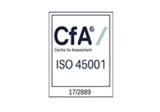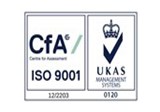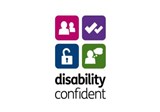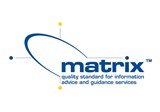Explore





over at
Frequently Asked Questions
Q: Does a Labourer working for a scaffolding company need a CISRS card?
A: Even though this employee may never leave the floor he should still apply for a CISRS Labourer card. In order to apply they will need to complete a CITB Health, Safety & Environment Test or Recognised Exemption achieve the CISRS Operative Training Scheme (COTS) Course and complete the Employer Declaration/Labourer Application Form. When completed, the form should be returned with a photograph of the operative, proof of the Health, Safety and Environment Test, proof of the CISRS Operative Training Scheme (COTS) Course and a payment to CITB of £26.50. This card may be useful in establishing the length of an operative’s industry experience prior to attending a Part 1 course.
Q: How long after completing the COTS Course do I need to apply for my CISRS Labourers/Trainee Card?
A: An application for a CISRS card would need to be received within 2 years of taking the COTS course. If you have a question that isn’t covered by our FAQs, please refer to the link below for more.
Q: I have achieved S/NVQ qualification, am I entitled to a CISRS card?
A: No, there are 4 elements needed to obtain a CISRS card, CISRS practical training, S/NVQ, CISRS Skills Test and CITB Health, Safety and Environment test. CISRS Scaffolder cards are only issued when the operative has undertaken the relevant CISRS training Part 1 and Part 2, achieved the S/NVQ Level 2 in Access and Rigging Operations, passed the CISRS 1-day Skills Test and passed a CITB Health, Safety and Environment test. To reach Advanced they must carry out all of the above plus the CISRS Advanced course, S/NVQ Level 3 in Access and Rigging Operations, passed the CISRS 2-day Skills Test and passed the CITB Health, Safety and Environment test.
Q: Who can supervise scaffolding?
A: When considering the direct supervision of a scaffolding gang i.e. a working foreman, leading hand etc., the operative in this role must be qualified to the grade of CISRS Scaffolder as a minimum requirement. For more complex scaffold structures, a CISRS Advanced Scaffolder must undertake direct supervision of the gang. Supervision of a Scaffolding project/site as a whole (liaising with client, deploying operatives, estimating, inspection, pricing, H&S issues etc.) must also be carried out by a competent person, however this may not necessarily be a CISRS qualified Scaffolder. The 5 Day CISRS Scaffolding Supervisor training course is available from CISRS Approved Centres. It is aimed at scaffolding contractors first-line supervision i.e. Contract Supervisors, Foremen and Non-Working Charge hands. Upon successful completion of the above course the delegate is eligible to apply for the CISRS Scaffolding Supervisor Card. A Supervisory level CITB Health, Safety & Environment Test or Recognised Exemption is required.
Q: What is the process for renewing my CISRS card?
A: All existing cardholders will be required to renew their cards by completing the relevant application form and passing the relevant level of CITB Health, Safety & Environment Test or Recognised Exemption within 2 years of renewal, and submitting the application form with a recent photograph and payment of £26.50. From 1st July 2017, all CISRS Scaffolder and Advanced card holders will be required to attend a 2 Day Refresher/CPD course. For more information about CISRS Scaffolder Refresher/CPD Training please click here Renewal Notices will be sent to the last known address approximately 3 months prior to the card expiry date.
Q: I have lost my CISRS card/Certificate, how can I obtain a replacement?
A: If you have lost your CISRS Card you can call the CISRS Helpline on 0844 8157223 for a replacement. The cost of a replacement card is £26.50. If you have lost your CISRS Certificate you will need to contact the CISRS approved centre at which the training was undertaken, and request them to issue a Copy/replacement certificate. There may be an administration fee for this service. Usually you will need a certificate to apply for a card, if you are on the CISRS database already CISRS can accept that you have done the training, if you are not and you can no longer produce a certificate you need to contact the centre at which you did your training. If the centre cannot provide a duplicate or confirm the training took place, CISRS cannot issue a card. If the applicant has copies of joining instructions for the course or perhaps proof of grant payment for the training or some possible evidence that the training took place CISRS might be able to accept this on an appeal basis, however the applicant must make an appeal with the evidence in writing to:
CISRS, 4th Floor, 12 Bridewell Place, London, EC4V 6AP http://cisrs.org.uk/faq/
CCNSG Health & Safety Passport:
Q: What is the difference between the CSCS card and CCNSG Safety Passport card?
A: The CSCS Card is for the Construction Industry and the CCNSG Safety Passport is for the Engineering Construction Industry. The clients on each site specify what the requirements are to work on their sites.
Q: What must I do if I haven’t renewed my card within the 3 months grace period?
A: ECITB have withdrawn the 3 month grace period for renewals previously available to CCNSG card holders. The renewal can now only be attend within a CCNSG Safety Passport card lifespan. Once a CCNSG card has expired, the 2 day National Safety Passport must be attended.
Q: How long will it be before I receive my CCNSG Safety Passport card?
A: On completion of the course you will receive a Green Temporary Card which will last for 6 weeks. Within the 6 weeks the awarding body, ECITB will issue your Operatives card.
IOSH:
Q: How long does the IOSH certification last?
A: There is no expiry period as such, but a refresher period of 3 years is advised.
Q: How is this course assessed?
A: This is a classroom based course with written question papers.
Q: What is the difference between the Working Safely course and the Managing Safely course?
A: The Working Safely is for all workers, the Managing Safely is for all those responsible for employees in the workplace.
Compex Hazardous Areas:
Q: Who is the CompEx course aimed at?
A:This is required by Electro-Technical personnel who need to demonstrate competency in the selection, inspection, installation, and maintenance of electrical equipment in explosive atmospheres.
Q: How is competence assessed?
A: Assessments are both practical and written multi-choice papers.
Q: What certification will be received on completion of the CompEx course?
A: There will be confirmation of electrical competence as well as confirmation from the awarding organisation, CompEx, that the course has been passed. Following successful completion of the course, a CompEx certificate is issued.
Q: How long does the CompEx certificate last?
A: Each CompEx certificate is valid for a period of 5 years.
Q: Do I get a grace period to renew a CompEx certificate?
A: The awarding organisation state that the 2-day refresher must be completed prior to expiry, no grace period is given.
Q: What happens if my certification has expired?
A: The awarding organisation state that all delegates who have allowed their certification to lapse must attend the initial 5-day course again.
18th Edition:
Q: Who is the 18th Edition suitable for?
A: Anyone working as an Electrical Installer and those requiring and up to date understanding of the wiring regulations.
Q: How is the course assessed?
A: This course is theory based with no practical element, and an online City & Guilds exam.
PAT:
Q: Why do I need a PAT course?
A: Regular inspection of appliances and equipment reduces the risk of electrical hazards.
Q: Who is the PAT course aimed at?
A: This course is required by personnel who are responsible for the maintenance of equipment and appliance in the workplace.
MJI:
Q: Why is this course required?
A: This course has been produced to ensure employees are aware of the importance of bolting connection techniques to avoid the risk of leaking flanges.
Q: What knowledge will this course give me?
A: This course will provide delegates with an understanding of gaskets and flanged joints. This ensures delegates are aware of the safe use of hydraulic equipment.
Q: What certification will I receive?
A: On completion of theory and practical assessments delegates receive an ECITB certificate.
Q: After completion of assessments, am I authorised to work on gas?
A: No, not until you have received your certificates from our certification body and your details have been uploaded to the Gas Safe Register.
Q: How long do ACS qualifications last?
A: Certification must be refreshed every 5 years.
Q: How long after expiry dates of ACS qualifications, can I complete a re-assessment?
A: You have up until 1 full year after expiry date to re-new. However this is a grace period for training & assessment and not an extension of certification. You are therefore not authorised to carry out any gas work after the expiry date of your certificate.
Q: When should I re-new my gas qualification?
A: We advise that you attend re-assessment courses at least 4 weeks prior to your certificates expiring to ensure continuity of qualifications.
Q: What do I need to bring with me when attending the courses?
A: 1 passport sized photograph and your current qualifications, if applicable (not your Gas Safe Card)
- Registered Office:
- Pennine Avenue
- North Tees Industrial Estate
- Portrack Lane
- Stockton on Tees
- TS18 2RJ, UK
- +44 (0) 1642 616936
- info@neta.co.uk
- NETA is a limited company, registered in England.
- Company Number: 01273462
- VAT Number: 218 9727 72
- Press and Media Enquiries
















